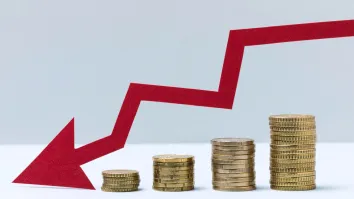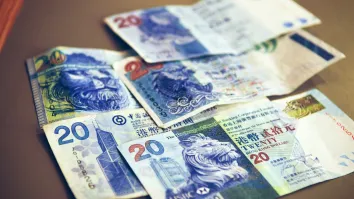
GDP to slow in 2025 as US-China tensions hit trade: ADB
Economy is projected to grow by 2.3% in 2025, slightly below last year’s 2.5%, before inching up to 2.5% in 2026.
Hong Kong’s economy is expected to expand at a modest pace in 2025, as trade activity softens and investment remains sluggish, according to the Asian Development Bank’s latest Asian Development Outlook report.
Gross domestic product (GDP) is projected to grow by 2.3% in 2025, slightly below last year’s 2.5%, before inching up to 2.5% in 2026. The slowdown is mainly attributed to weaker trade flows amid escalating trade tensions between the United States and the People’s Republic of China (PRC), which directly impact Hong Kong due to its role as a regional trade hub.
“The 10% additional US tariffs on PRC goods imposed on 10 February and raised to 20% on 4 March will dampen trade with the PRC, which accounts for about half of Hong Kong, China trade,” the report stated.
Whilst domestic consumption is expected to recover slightly, the strong Hong Kong dollar continues to push local residents to shop and spend across the border.
“Residents will keep buying goods and services overseas and in nearby PRC cities. This will hinder private consumption growth and retail trade,” the report noted. Nevertheless, a tight labour market and rising wages are likely to offer some support to household spending.
Inflation is forecast to edge up slightly to 1.9% in 2025 and 2% in 2026, driven by “housing rentals and labour costs” but restrained by “production remaining below capacity” and easing global food and energy prices.
Investment is expected to drag growth this year, especially in the private sector, which faces persistent headwinds from high interest rates and an oversupply in the property market. “The property sector will remain subdued in 2025 due to high borrowing costs and a backlog of unsold properties,” the report warned.
Recovery is expected to come from public investment, particularly tied to large-scale infrastructure projects. Notably, spending is expected to increase around the Northern Metropolis development, which includes plans for 900,000 homes and a tech innovation hub.
Despite the weak momentum, the fiscal position is expected to improve. The deficit is projected to narrow to 2% of GDP in FY2025, as “revenue is expected to increase by 17.8%... driven by increasing earnings and profits tax, but also an expected 55.3% rebound in land premiums.”
However, risks remain skewed to the downside. “Worsening tensions between the PRC and the US could also raise market volatility, hurting the financial sector, which accounts for a quarter of GDP,” the report cautioned.
As Hong Kong eyes a slow recovery, policymakers are turning to targeted strategies—such as the government’s “mega events” push—to stimulate growth and strengthen the city's long-term appeal.



















 Advertise
Advertise






